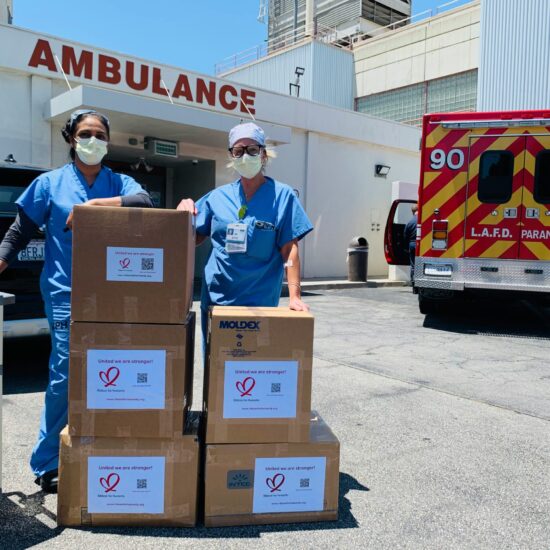
 This is a guest post by Kevin McGirr, Associate Professor in the Nursing Department at New York City College of Technology. He holds degrees in public health and psychiatric nursing and has worked in public health and community mental health for the last four decades. His interest is in advancing access to mental health services and the utilization of Harm Reduction and Motivational Interviewing in a wide variety of health problems.
This is a guest post by Kevin McGirr, Associate Professor in the Nursing Department at New York City College of Technology. He holds degrees in public health and psychiatric nursing and has worked in public health and community mental health for the last four decades. His interest is in advancing access to mental health services and the utilization of Harm Reduction and Motivational Interviewing in a wide variety of health problems.
This past September, I completed my term as a Nehru-Fulbright Scholar at the Jawaharlal Institute of Postgraduate Medical Education & Research Health Sciences campus in the south India city of Pondicherry. It was a privilege to receive this scholarship and to engage with their faculty, professionals and students.
The campus is a large multi-service hospital with Colleges of Medicine, Nursing and a recently inaugurated School of Public Health. Due to my service and academic background, I had the opportunity to teach in all three schools. I hold master’s degrees in public health and psychiatric nursing and I’ve completed course work for a doctoral degree in public health.
To state that the experience has been interesting would be classic understatement. As I had anticipated, I have probably learned more than I have taught.
India is soon to be come the most populous nation on the planet and currently holds a sixth of the world’s population. It is a nation of significant diversity and contrasts in the way or religion, culture, language and class yet there is a national and cultural pride that is a very powerful glue. It is growing in leaps in bounds. It has the legacy of poverty and all that that implies with regard to health status but also has the dubious distinction of acquiring the Western propensity for “lifestyle” illnesses, e.g., illnesses that are attributed to various behaviors such as: diet, substance use and physical exercise.
My clinical background is mental health hence my tentacles were out seeking how the culture navigates and responds to mental health problems. It is a significant challenge. Estimates for the number of mental health professionals across India run as low as 10,000 for a population of 1.2 billion people; compare that to estimates of 550,000 for a U.S. population of 300 million. The need is staggering but at a more fundamental level, there is need to examine much deeper into how the culture conceptualizes and navigates emotional distress.
The documented rate of suicide varies with estimates as high as 16 per one hundred thousand. Depending upon the data you consider, this is either higher or lower than the U.S. but what is clear that there is a very poor system of reporting and conventional wisdom suggests that the Indian estimate is very conservative. A lot of attention has focused on the rural areas where farmers, due to emerging economic challenges have resorted to suicide in significant numbers. A second group are students and young adults who are also turning to suicide to resolve feelings of perceived academic and occupational failure.
There is little in the way of prevention and community mental health services have barely been on the National Health radar screen. There is a need for a lot of very basic data collection and research. One effort in which this author has become involved is a qualitative research effort to investigate coping and help-seeking behavior related to suicide. There is a significant list in the health area for growth and exploration; mental health is probably one of the biggest.








